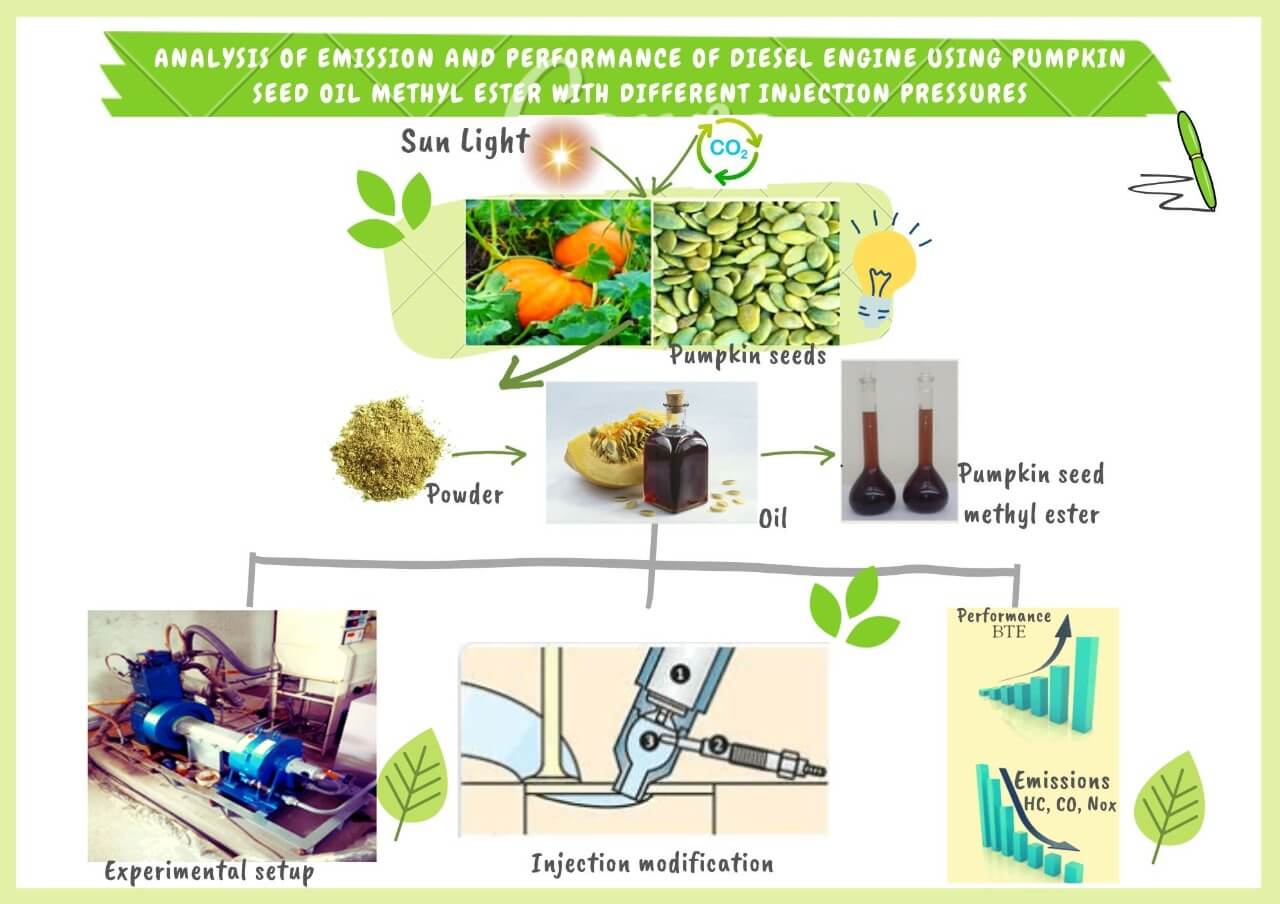 Open Access
Open Access
ARTICLE
Analysis of the Emissions and Performance of a Diesel Engine Using Pumpkin Seed Oil Methyl Ester with Different Injection Pressures
1 Research Scholar, Department of Mechanical Engineering, Vinayaka Missions Research Foundation, Chennai, 603104, India
2 Department of Mechanical Engineering, Aarupadai Veedu Institute of Technology, Vinayaka Missions Research Foundation, Chennai, 603104, India
3 Department of Mechanical Engineering, Vinayaka Mission’s Kirupananda Variyar Engineering College, Vinayaka Mission Research Foundation, Chennai, 636001, India
4 Department of Mechanical Engineering, Dr. M.G.R. Educational and Research Institute, Chennai, 600095, India
* Corresponding Author: Surendrababu Kuppusamy. Email:
(This article belongs to the Special Issue: Advances in Fluid Dynamics and Functional Materials)
Fluid Dynamics & Materials Processing 2023, 19(4), 1003-1014. https://doi.org/10.32604/fdmp.2022.022262
Received 01 March 2022; Accepted 04 April 2022; Issue published 02 November 2022
Abstract
Biodiesel fuel is a potential alternative energy source for diesel engines due to its physiochemical characteristics relatively similar to those of traditional diesel fuel. In this study, the performance, emission, and combustion features of a mono cylinder DI diesel engine are assessed using 20% Pumpkin seed methyl ester (PSOME20) and considering varying injection pressures (200, 220, 240, and 260 bar). The considered Pumpkin seed oil is converted into pumpkin biodiesel by transesterification and then used as fuel. The findings demonstrate that the Brake Thermal Efficiency (BTE) of PSOME20 can be raised by 1.68%, and the carbon monoxide (CO), hydrocarbon (HC), and smoke emanations can be lowered, while oxides of nitrogen (NOx) emissions are increased at an injection pressure (IP) of 240 bar compared to the standard IP of 200 bar. The cylinder pressure and the Heat Release Rate (HRR) become higher at 240 bar, whereas the ignition delay is shortened with respect to PSOME20 at a normal IP of 200 bar.Graphic Abstract

Keywords
Cite This Article
 Copyright © 2023 The Author(s). Published by Tech Science Press.
Copyright © 2023 The Author(s). Published by Tech Science Press.This work is licensed under a Creative Commons Attribution 4.0 International License , which permits unrestricted use, distribution, and reproduction in any medium, provided the original work is properly cited.


 Submit a Paper
Submit a Paper Propose a Special lssue
Propose a Special lssue View Full Text
View Full Text Download PDF
Download PDF Downloads
Downloads
 Citation Tools
Citation Tools